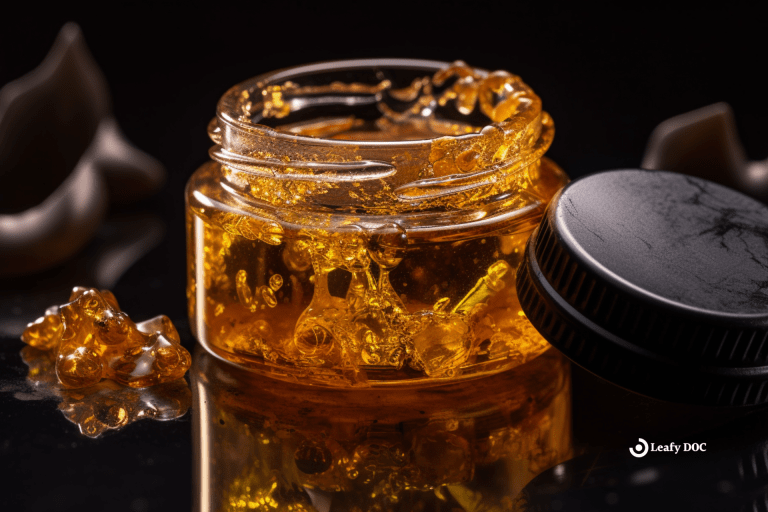Hypoglycemia
Can medical marijuana help people with symptoms of hypoglycemia? Find out more below.
What is Hypoglycemia?
Hypoglycemia is a medical condition characterized by abnormally low blood glucose levels. Glucose is the primary energy source for the body’s cells, obtained from the food we eat. In a healthy person, the body carefully regulates the glucose level in the blood to ensure that it remains within a specific range. However, the body cannot maintain this balance in people with hypoglycemia, and the blood glucose levels drop below the normal range. This can cause various symptoms, including dizziness, confusion, sweating, trembling, weakness, and, in severe cases, seizures or loss of consciousness.
How and Why do People Get it?
Hypoglycemia occurs when the blood glucose levels drop below a certain threshold, typically less than 70 mg/dL. This can happen for various reasons, including poor diet, overuse of certain medications, or an underlying medical condition affecting insulin production or sensitivity.
In healthy individuals, the body produces insulin to help transport glucose from the bloodstream into cells for energy. However, sometimes the body produces too much insulin, which can cause the blood glucose levels to drop too low. This can happen due to excessive alcohol consumption, fasting, or eating meals with high amounts of carbohydrates that cause a spike in insulin production followed by a rapid drop in glucose levels.
Certain medications, such as insulin and some diabetes medications, can lower blood glucose levels and increase the risk of hypoglycemia. Other medical conditions, such as liver disease, hormonal imbalances, or certain tumors, can affect the body’s ability to regulate blood glucose levels and cause hypoglycemia.
What are the symptoms?
Here’s a list of primary hypoglycemia symptoms:
- Dizziness or lightheadedness
- Confusion or difficulty concentrating
- Sweating, especially when not exercising or in a warm environment
- Trembling or shaking
- Weakness or fatigue
- Blurred vision
- Headache
- Nausea or vomiting
- Irritability or mood changes
- Rapid heartbeat or palpitations
- Anxiety or nervousness
- Seizures or convulsions (in severe cases)
- Loss of consciousness (in extreme cases)
Not everyone with hypoglycemia will experience all of these symptoms, which can vary depending on the severity of the condition. If you are experiencing symptoms, it’s essential to check your blood glucose levels and seek medical attention if they are persistently low or if you are unsure how to manage them.
Diagnosis & Treatment
Identifying the underlying cause of hypoglycemia is essential to treat the condition effectively. Treatment typically involves consuming foods or drinks that quickly raise blood glucose levels, such as juice or candy, to prevent symptoms from worsening. In severe cases, glucagon injections or hospitalization may be necessary. Overall, monitoring blood glucose levels, maintaining a healthy diet, and following medication regimens can help prevent hypoglycemia in at-risk people.
Can medical cannabis help?
The Texas A&M School of Public Health performed a 2022 data analysis study that examined national survey results from over 15,000 people. They found that female cannabis consumers who consumed substantial amounts of cannabis had a lower incidence of diabetes than females with little to no cannabis use.
A 2016 trial in Diabetes Care found that THCv could present a new therapeutic option for glycemic control in people with type 2 diabetes.
The authors noted that using THCV significantly impacts fasting blood glucose levels and improves pancreatic function.
A 2013 study of around five-thousand adults found that marijuana use was associated with lower fasting insulin levels, insulin resistance, and smaller waist circumference. Cannabis use acts through the direct and indirect stimulation of cannabinoid receptors in the endocannabinoid system. This cell-signaling system modulates the body’s central nervous system and helps maintain homeostasis.
Researchers have also found that CBD lowers resistin levels and increases gastric inhibitory polypeptide that triggers insulin production. Since CBD possesses anti-inflammatory properties may be a vital protective tool for diabetes patients.
Currently, no conclusive evidence suggests that medical cannabis can help with hypoglycemia. While some studies have suggested that cannabis may have potential therapeutic effects on blood sugar regulation, little research explicitly examines its impact on hypoglycemia.
Furthermore, some research has suggested that cannabis use may increase the risk of hypoglycemia in specific individuals, particularly those with diabetes who are already at risk for blood sugar fluctuations. THC, the primary psychoactive compound in cannabis, has been shown to affect glucose metabolism in some animal studies, but more research is needed to fully understand its effects in humans.
It’s important to note that while medical cannabis may have potential benefits for specific medical conditions, it is not a substitute for proven medical treatments for hypoglycemia, such as consuming foods or drinks that raise blood glucose levels. If you are experiencing symptoms of hypoglycemia, it’s essential to consult with a healthcare provider to determine the underlying cause and appropriate treatment options.
Last Updated: June 14, 2024
Get Your Medical Card
Connect with a licensed physician online in minutes
Table of Contents
Keep Reading
-
Using Medical Cannabis For Effective Pain Management
Find out how medical cannabis can effectively manage pain and improve your quality of life. Learn about its benefits and determine if it’s the right solution for you. Click now to discover the power of medical cannabis for pain management!
-
The Connection Between Cannabis & Appetite
Learn about the link between cannabis and appetite, including how it can increase appetite and why it may be beneficial for some people.
-
Live Rosin VS Live Resin
Resin vs Rosin: Unveiling the Ultimate Showdown! Choose Your Winner and Unlock the Secrets. Click Now to Discover Live Rosin and Live Resin – Which Will Reign Supreme?



